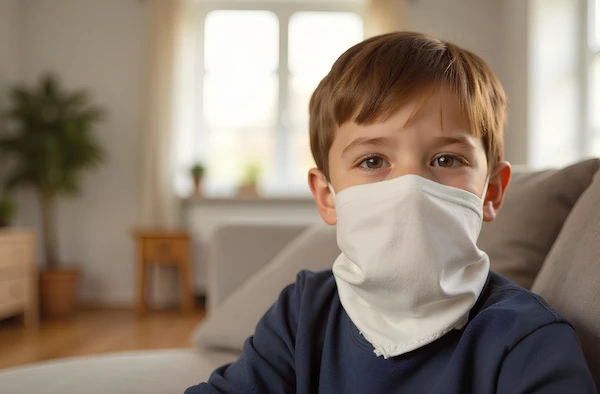- female
- 30 Years
- 22/01/2025
I'm curious about what's going on with my health. I've been experiencing watery eyes, a runny and stuffed nose, body aches, an itchy throat and nose, and headaches that all come on suddenly. I usually take cetirizine, and it seems to clear up these symptoms within a day. But the problem is they keep coming back every couple of weeks or even sooner. Plus, I end up sneezing like 60 to 70 times in a day, which is just exhausting. And these really intense headaches are happening every other day too. Could you help me figure out what might be going on?
Answered by 1 Apollo Doctors
allergic rhinitis, avoid the allergen
Answered 04/07/2025
0
0

More Allergist and Clinical Immunologist Health Queries
View allI'm really worried and I need some advice. My CBS test is done, but I'm concerned because my eosinophil count is at 10 and my ESR is 44. Is this something related to asthma or could it be another issue? I'm feeling kind of anxious about what these numbers might mean. Can you help clarify this for me?
Patient is advised absolute eosinophil count ,x-ray chest pa view.
Answered by 1 Apollo Doctors
I'm having these hives on my skin for the past three days. They seem to go away when I take Allegra, but come back the next day. I'm wondering how long it might take for them to fully go away. I remember having this same issue last summer. What could be causing this? I'm a 35-year-old male, by the way. Any advice would be great.
This could be fungal infection u need to evaluate with your Dermatologist and get appropriate treatment with oral antifungal medications and topical lotions,once the infection is resolved your hair fall would come down,I suggest you not to use minoxidil with active fungal infection,above this your personal hygiene care is more important.
Answered by 1 Apollo Doctors
I've been dealing with allergic rhinitis for the past four years and haven't seen an allergist yet. It's not seasonalI'm struggling with it all year round. Is it possible for an allergist to provide a permanent cure for this, or at least offer some significant relief? I'd really appreciate any advice.
Allergists can help manage and treat allergic rhinitis effectively, but it may not be cured forever. They can provide you with medications such as Loratadine (Claritin) or Cetirizine (Zyrtec) to help relieve your symptoms. In some cases, they may also recommend allergy shots (immunotherapy) to reduce your body's response to allergens. It's important to consult with an Allergist to create a personalized treatment plan for your allergic rhinitis.
Answered by 1 Apollo Doctors
Disclaimer: Answers on Apollo 247 are not intended to replace your doctor advice. Always seek help of a professional doctor in case of an medical emergency or ailment.




